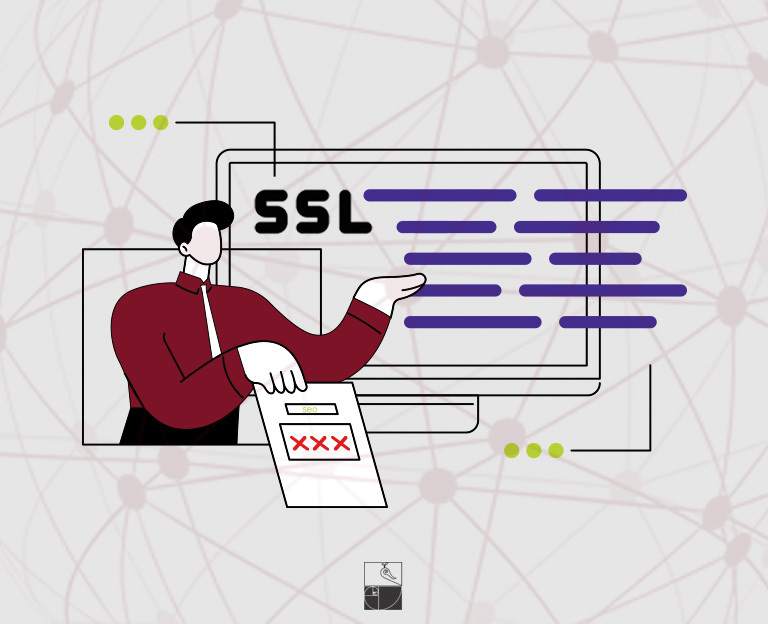In a recent exchange on Mastodon, a popular social networking platform, Google’s renowned webmaster trends analyst, John Mueller, discussed the relationship between SSL certificates and search engine optimization (SEO). The conversation was prompted by a user who claimed that obtaining an SSL certificate could substantially improve a website’s SEO performance and overall reputation. This notion prompted Mueller to step in and provide an unequivocal response, firmly stating that SSL certificates do not possess any direct influence on SEO. Mueller’s contribution to the conversation helped dispel a common misconception surrounding the perceived SEO benefits of SSL certificates. It provided valuable insights into the role of these certificates in the broader context of website optimization.
Understanding SSL Certificates and Their Role
Secure Sockets Layer (SSL) is an encryption protocol that ensures secure communication over the internet. An SSL certificate serves as a digital authentication tool, verifying the identity of a website and establishing a secure connection between a user’s browser and the server. This certificate plays a vital role in safeguarding data during transmission. Imagine a user, Sarah, who wants to purchase a product from an online store. When Sarah visits the website, her browser initiates a handshake process with the server hosting the online store. During this process, the SSL certificate is presented by the website, acting as digital proof of its identity. Sarah’s browser verifies the certificate’s authenticity, ensuring she connects to a legitimate online store, not an imposter. Once the handshake is complete, an encrypted connection is established between Sarah’s browser and the server, providing a secure channel for her to securely transmit sensitive information, such as her credit card details. This example highlights how an SSL certificate plays a vital role in verifying website identity and establishing a secure connection, ensuring the confidentiality and integrity of data during transmission.
SSL Significance
SSL certificates are vital in ensuring online security in today’s digital landscape. These certificates provide a layer of encryption that guarantees secure communication over the internet, safeguarding users’ sensitive information from unauthorized access. Using SSL, websites establish a trustworthy and secure environment, instilling user confidence and protecting their data. SSL encryption scrambles the data transmitted between a user’s browser and the website’s server, making it nearly impossible for unauthorized individuals to intercept and decipher the information. Visual cues, such as the padlock symbol and “https” in the URL, further reinforce the website’s credibility.
Moreover, SSL certificates contribute to website performance by positively influencing search engine rankings, as search engines consider SSL a ranking factor. Overall, SSL certificates are crucial for data security, trust-building, reputation protection, and potential improvements in search engine visibility. Investing in SSL certificates is a proactive step that website owners and businesses should take to provide a secure and reliable user experience in today’s digitally connected world.
Secure Communication
SSL certificates enable secure communication channels between users’ browsers and web servers. When a user visits an SSL-secured website, a handshake process occurs. During this process, the server presents the SSL certificate, and both parties verify each other’s identity. Once the handshake is complete, an encrypted connection is established, ensuring the confidentiality and integrity of data transmitted between the user and the website. The SSL certificate contains crucial information, including the website’s domain name, validity period, and the digital signature of the certificate authority. The browser verifies the certificate’s authenticity, checking if it’s issued by a trusted authority, not expired or revoked, and matches the accessed website’s domain name. This verification builds trust and prevents unauthorized access. The encrypted connection scrambles data, making it virtually impossible for attackers to intercept or decipher sensitive information like login credentials or payment details. SSL certificates play a vital role in protecting user privacy, instilling confidence, and fostering trust between users and websites in today’s digital landscape.
Website Verification
Verifying the identity of a website is a fundamental function of an SSL certificate. When users access a website, the SSL certificate serves as digital proof, assuring that the website they are connecting to is authentic and not an imposter aiming to steal their information. This verification process plays a vital role in instilling confidence in users, especially regarding e-commerce platforms and websites that handle sensitive data. The SSL certificate contains essential information such as the website’s domain name, company details, and the digital signature of the certificate authority. When a user’s browser receives the certificate, it verifies its authenticity by checking if a trusted authority issues it and matches the accessed website’s domain name. This validation process ensures that users can trust the website and confidently share their personal and financial information, knowing it is protected during transmission. By providing this layer of trust and authentication, SSL certificates create a secure online environment, foster positive user experiences, and safeguard sensitive data from potential threats.
Data Encryption
In the digital landscape, where data security is paramount, SSL certificates safeguard sensitive information during transmission. When users interact with a website secured with SSL, the data exchanged between their browser and the server undergoes encryption. This encryption process converts the data into an unreadable format, ensuring that the information remains protected from prying eyes even if intercepted. This level of encryption is fundamental when sensitive data such as credit card details, login credentials, or personal information is transmitted over the internet. The SSL certificate establishes a secure and private channel, allowing users to confidently share their data, knowing it is shielded from unauthorized access. Additionally, SSL certificates employ advanced cryptographic algorithms to ensure the integrity of the data, detecting and preventing any unauthorized modifications during transmission. By providing this robust data protection mechanism, SSL certificates build trust between users and websites, enable secure online transactions, and mitigate the risk of data breaches and identity theft.
Google’s Push for HTTPS Adoption
Google’s push for HTTPS adoption has played a crucial role in improving online security. Recognizing the growing concerns over user privacy and data protection, Google took proactive measures to encourage the adoption of security standards on the web. One of the significant obstacles to widespread HTTPS adoption was the misconception that obtaining an SSL certificate was technically complex and only necessary for websites involved in financial transactions. To dispel this myth and emphasize the importance of secure connections across the board, Google made a significant move in 2014. They announced that HTTPS would be included as a ranking factor in their search algorithm. This decision had a dual effect: it incentivized website owners to implement SSL certificates and secure connections while raising awareness about HTTPS’s benefits among web admins and users. By incorporating HTTPS into their ranking algorithm, Google sent a clear message that website security is a priority, regardless of the nature of the website’s content or the presence of online transactions. As a result, website owners started to recognize the value of SSL certificates in enhancing user trust and search visibility. This initiative by Google has played a pivotal role in driving the widespread adoption of HTTPS, making the web a safer place for users to browse, interact, and share sensitive information.

User Security Focus
Google strongly emphasizes user security, advocating for security standards on the web to create a safer online environment. By promoting HTTPS as the standard protocol for website connections, Google aims to enhance overall security and protect user privacy. HTTPS encrypts data transmitted between a user’s browser and a website’s server, making it harder for malicious actors to intercept sensitive information. This encryption is essential when handling confidential data such as login credentials or financial transactions. Incentivizing website owners to adopt HTTPS, Google offers benefits like improved search rankings and the display of a padlock icon to indicate a secure connection. Google’s efforts extend beyond its search engine, with warnings in its Chrome browser for non-HTTPS sites, encouraging website owners to prioritize security. By focusing on user security, Google strives to create a safer and more trustworthy online ecosystem, aligning with its mission to provide users with a secure and reliable online experience while safeguarding their privacy from potential threats.
Complexity Misconceptions
One challenge hindering the widespread adoption of HTTPS was the misconception that obtaining an SSL certificate was overly complex and reserved only for websites engaged in financial transactions. This perception discouraged many website owners from implementing secure connections, as they believed it to be an unnecessary burden. However, Google recognized the importance of removing this barrier and sought to dispel these misconceptions. The company provided accessible resources and simplified the process of obtaining SSL certificates, making it feasible for websites of all types to enhance their security. Google’s efforts included creating detailed documentation, step-by-step guides, and tools that streamlined the SSL certificate acquisition process. These initiatives aimed to educate and empower website owners, enabling them to quickly secure their sites with HTTPS. By demystifying the technical aspects and showcasing the benefits of HTTPS beyond financial transactions, Google effectively addressed the perception of complexity, making secure connections more accessible and encouraging website owners to prioritize the security and privacy of their users.
HTTPS Ranking Signal
In a groundbreaking move in 2014, Google took a significant step towards advancing web security by introducing HTTPS as a ranking factor in its search algorithm. This strategic decision demonstrated Google’s commitment to promoting secure connections and incentivizing website owners to prioritize the adoption of HTTPS. The inclusion of HTTPS as a ranking signal was driven by the understanding that a secure web ecosystem is fundamental to providing users with a safer browsing experience. By integrating HTTPS as a factor in search rankings, Google effectively sent a clear message to web admins: implementing SSL certificates and secure connections not only safeguards user data but also carries the potential to improve a website’s visibility and organic search performance. This initiative aligned with Google’s broader mission of encouraging the adoption of best practices that enhance user security and privacy. As a result, website owners recognized the significance of HTTPS beyond security benefits alone. They began actively embracing SSL certificates to improve their search engine rankings while creating a more secure online environment for their users.
The Power of Incentives
Google’s introduction of HTTPS as a ranking factor in its search algorithm brought forth a powerful incentive that greatly influenced website owners’ decisions to transition to secure connections. Understanding the profound impact of search engine rankings on website visibility and organic traffic prompted website operators to recognize the compelling advantages of aligning with Google’s recommendation. The prospect of improved search rankings and increased organic traffic drove website owners to embrace SSL certificates and implement secure connections. This incentivized approach created a positive feedback loop as more and more website operators recognized the inherent value of prioritizing user security and privacy. The substantial rise in the adoption of SSL certificates led to a notable transformation in the web ecosystem, contributing to a more secure online environment for users globally. This shift enhanced the protection of sensitive information during data transmission and instilled greater trust and confidence among users, who were increasingly aware of the importance of secure connections. Google’s use of incentives proved to be a catalyst for change, effectively encouraging website owners to make the necessary investments in securing their platforms and contributing to the collective advancement of web security.
The Evolving Signal of HTTPS
In 2014, Google took notice of the growing adoption of HTTPS by web admins and acknowledged the positive outcomes it had generated. At that time, the ranking signal associated with HTTPS was relatively lightweight, affecting less than 1% of global queries. However, Google hinted at the potential to strengthen this signal in the future, signaling its commitment to advancing web security. This statement from Google sent ripples through the web community as website owners recognized the significance of Google’s endorsement and the potential implications for their search visibility. It sparked a sense of anticipation and motivated web admins to invest further in securing their websites with SSL certificates. The prospect of an enhanced ranking signal associated with HTTPS underscored the increasing importance of adopting secure connections and cemented Google’s role in shaping the industry standards for web security. This announcement marked a significant turning point, reinforcing that HTTPS was not just a passing trend but a fundamental requirement for websites aiming to establish trust, protect user data, and stay competitive in the evolving digital landscape.
Growing HTTPS Adoption
Google’s recognition of the rising adoption of HTTPS by web admins demonstrates its attentiveness to the evolving landscape of website security and the changing needs of internet users. In 2014, Google publicly acknowledged HTTPS’s positive impact on web browsing security and privacy. This acknowledgment validated the efforts of web admins who had already embraced secure connections and sent a strong signal to those who still needed to transition. By acknowledging the importance of HTTPS, Google effectively emphasized the growing trend among web admins to prioritize the implementation of secure connections, recognizing it as a significant step toward creating a safer online environment. The recognition from a prominent player like Google further underscored the significance of HTTPS in protecting user data and fostering trust. As a result, more website owners began to consider the adoption of SSL certificates and HTTPS, not only for the potential search engine benefits but also for the broader objective of enhancing security and privacy for their users. This acknowledgment by Google marked an important milestone in the journey towards a more secure and trustworthy web.
Lightweight Introduction
Google introduced it as a lightweight ranking signal to incentivize website owners to embrace HTTPS. This subtle indication communicated that HTTPS could positively impact search engine rankings without causing abrupt disruptions. The lightweight signal affected less than 1% of global queries, allowing web admins to transition gradually and understand that its impact on SEO rankings was not immediately transformative. This approach provided a gentle nudge to adopt secure connections, allowing website owners to enhance their website security and align with Google’s recommendations at their own pace. By introducing a lightweight signal, Google acknowledged the complexities of transitioning to HTTPS. It aimed to create a safer web ecosystem while allowing website owners to make informed decisions about their migration process. This strategic move set the stage for broader acceptance of HTTPS and laid the foundation for further developments in Google’s treatment of secure connections in its search algorithm.
Future Enhancement
Google’s statement regarding the potential enhancement of the HTTPS ranking signal showcased the search engine’s dedication to advancing a secure web environment. By hinting at its willingness to strengthen the impact of HTTPS in the future, Google signaled its ongoing commitment to prioritizing websites that prioritize user security. This announcement reassured web admins of the importance of adopting secure connections and encouraged them to take proactive measures to stay ahead of evolving security standards. The prospect of an enhanced ranking signal served as an additional incentive for website owners to prioritize the implementation of HTTPS, as they recognized the potential long-term benefits of being proactive in securing their websites. This forward-looking approach by Google demonstrated its continuous efforts to create a safer online experience for users and foster a culture of security and trust across the web. It also underscored the importance of staying informed and adaptable in the ever-changing SEO and web security landscape.
Safe Web
Google’s emphasis on the evolving signal of HTTPS went beyond individual websites and aimed to create a safer web ecosystem for users. By incentivizing web admins to adopt secure connections, Google played a crucial role in raising awareness about the significance of website security and privacy. Introducing HTTPS as a ranking factor in Google’s search algorithm was a decisive step toward promoting a more secure online experience. The potential enhancement of the HTTPS signal further demonstrated Google’s commitment to continuously evolving its ranking factors to keep up with emerging security threats and technological advancements. This commitment inspired web admins to prioritize the implementation of HTTPS, knowing that it not only improved their website’s security but also contributed to a safer online environment for all users. Google’s efforts in fostering a safer web ecosystem extended beyond its search engine and had a ripple effect across the entire internet, encouraging other search engines, websites, and online platforms to prioritize security measures. The collective focus on website security led to increased awareness, adoption, and implementation of secure connections, ultimately enhancing the overall safety and trustworthiness of the online landscape.
SSL Certificates and SEO Boost
While HTTPS is a ranking factor, it does not directly boost SEO. Ranking factors are criteria used by search engines to determine a website’s position in search results. However, not all ranking factors have the same weight or significance. Some factors, including HTTPS, carry minimal influence on a website’s ranking. One key consideration is that nearly all websites today use HTTPS, nullifying any ranking advantage derived solely from its adoption.
Consequently, the perceived SEO boost associated with SSL certificates becomes negligible. John Mueller has consistently emphasized the relatively weak influence of the HTTPS ranking signal. Similarly, he debunked the claim that lacking an SSL certificate would result in a website being dropped from Google’s search results. For example, a study conducted by an SEO research firm analyzed thousands of websites and found that the presence of an SSL certificate had no discernible impact on search rankings. These findings further reinforce that the perceived SEO boost associated with SSL certificates becomes negligible. John Mueller, a prominent figure at Google, has consistently emphasized the relatively weak influence of the HTTPS ranking signal. Similarly, he debunked the claim that lacking an SSL certificate would result in a website being dropped from Google’s search results, highlighting that other factors hold far more weight in determining a website’s visibility and ranking.
Ranking Factors
Ranking factors are crucial in determining a website’s position in search results and overall search engine optimization (SEO) efforts. While some factors, such as content relevance, website structure, backlinks, and user experience, carry significant weight in SEO, others have a lesser impact. SSL certificates, including HTTPS, fall into the latter category. While they contribute to a website’s security and user trust, SSL certificates do not directly boost SEO rankings. Most websites have already adopted HTTPS as a standard practice, making it a widespread factor rather than a distinguishing one. To improve SEO rankings, website owners should focus on a comprehensive strategy that includes optimizing content, improving website structure, acquiring quality backlinks, and enhancing user experience. By considering these factors collectively, website owners can significantly improve their search visibility and overall SEO performance.
HTTPS Impact
The weight of HTTPS as a ranking factor in SEO often needs to be understood. While HTTPS, facilitated through SSL certificates, is recognized as a ranking factor, its impact on SEO is relatively modest. Simply having an SSL certificate and enabling HTTPS does not automatically lead to a substantial boost in a website’s SEO efforts. The widespread adoption of HTTPS across the web has made it a common standard rather than a differentiating factor in search engine rankings. With most websites already utilizing secure connections, the competitive advantage gained from HTTPS implementation alone has diminished. Website owners must recognize that SEO success relies on a comprehensive approach encompassing various factors such as high-quality content, optimized website structure, relevant keywords, authoritative backlinks, and positive user experience. By holistically considering these factors and implementing a well-rounded SEO strategy, website owners can achieve better search visibility and overall SEO performance.
Mueller’s HTTPS Insights
John Mueller, a renowned authority at Google, has provided valuable insights into the HTTPS ranking signal and its relationship with SEO. Mueller’s expertise has helped clarify the significance of SSL certificates in the larger context of search engine optimization. Throughout his engagements, Mueller has consistently emphasized that while HTTPS does contribute to a website’s ranking, its impact is relatively modest compared to more substantial factors like content quality and relevance. His statements serve as a reminder that more than the presence of an SSL certificate is needed for SEO success. Instead, Mueller encourages website owners to create high-quality, informative content that caters to users’ needs and aligns with their search intent. By providing these insights, Mueller dispels any misconceptions surrounding the idea that SSL certificates alone can guarantee a significant boost in SEO rankings. His guidance underscores the importance of a comprehensive approach to SEO that encompasses multiple factors, ultimately helping website owners make informed decisions about their optimization strategies.
SSL Certificate Debunked
In his efforts to provide accurate information, John Mueller has actively debunked various misconceptions surrounding SSL certificates and their relationship with website visibility. One prevalent myth he has addressed is the claim that a website without an SSL certificate would be dropped from Google’s search results. Mueller has made it clear that the presence or absence of an SSL certificate is not a decisive factor in whether Google indexes a page. While HTTPS benefits user experience and serves as a lightweight ranking signal, Mueller’s statements reaffirm that more than an SSL certificate is needed to lead to exclusion from search results. His insights reassure website owners and help dispel unfounded fears, allowing them to focus on implementing SSL certificates for the right reasons, such as improving user trust and data security. By addressing these specific claims, Mueller contributes to a more accurate understanding of the role of SSL certificates in the broader context of website visibility and search engine rankings.
Understanding the Nuance of SEO Signals
The role of HTTPS as a ranking factor has sparked confusion among SEO professionals. While some have regarded it as a tie-breaker in specific scenarios, the widespread adoption of HTTPS has diminished its differentiating effect. Recognizing that strong signals, such as backlinks, can significantly impact SEO rankings is crucial. In contrast, weak signals, like HTTPS, offer little to no real boost in search engine optimization. For example, consider two websites competing for a higher search engine ranking. Website A has implemented HTTPS and has a strong backlink profile with authoritative websites linking to it. Website B, on the other hand, lacks HTTPS but has an even stronger backlink profile. In this scenario, HTTPS alone would not give Website A a significant advantage over Website B regarding SEO rankings. The weight of the backlink signal would outweigh the relatively weak influence of the HTTPS signal. This example highlights the nuanced nature of SEO signals and the importance of understanding their varying degrees of impact on search engine rankings.
HTTPS Ranking Role
SEO professionals and website owners often question how much implementing HTTPS can positively impact their search engine rankings. While HTTPS is considered a ranking factor, its significance should be viewed in the context of other influential factors. Factors like high-quality content, relevant keywords, user experience, and backlinks carry more weight in determining a website’s SEO performance. HTTPS serves as an additional layer of security and enhances user trust, indirectly contributing to a positive user experience. However, it is not a transformative factor that can single-handedly propel a website to the top of search engine results. The impact of HTTPS on SEO rankings is more subtle and can be seen as part of a comprehensive SEO strategy encompassing multiple optimization efforts. By understanding the role of HTTPS within the broader context of SEO, website owners can make informed decisions about implementing SSL certificates and prioritize other crucial aspects of their optimization efforts.
Widespread HTTPS Impact
The widespread adoption of HTTPS by websites has significantly diminished the differentiating effect it once had on search engine optimization (SEO) rankings. Initially, when HTTPS was less common, websites that implemented secure connections stood out and could gain an advantage in SEO. However, as more and more websites transitioned to HTTPS, it became the norm rather than the exception. This widespread adoption has led to HTTPS no longer providing a significant distinguishing factor in SEO rankings. Search engines, including Google, continually evolve algorithms to consider various factors when determining search rankings. While HTTPS remains an essential aspect of website security and user trust, its impact on SEO rankings has become less pronounced due to its prevalence. Website owners and SEO professionals must recognize that other factors, such as high-quality content, relevant keywords, backlinks, and user experience, play more substantial roles in determining SEO success. A comprehensive SEO strategy should prioritize these factors along with the implementation of HTTPS to achieve the best possible search engine rankings.

Strong SEO Signals
Understanding the significance of ranking factors in SEO is crucial for website owners and SEO professionals. Strong signals, such as high-quality backlinks, have a substantial impact on SEO rankings as they demonstrate the authority and relevance of a website. These signals carry significant weight in search engine algorithms and are crucial in improving visibility in search results. On the other hand, weak signals like HTTPS offer limited benefits in terms of search engine optimization, especially considering their widespread implementation. HTTPS alone does not provide a significant advantage in SEO rankings, as its differentiating effect has diminished due to the widespread adoption of secure connections. Instead, optimizing stronger signals like creating high-quality content, acquiring authoritative backlinks, improving website usability, and ensuring a positive user experience is essential. By prioritizing these factors, website owners can develop an effective SEO strategy that maximizes their chances of achieving optimal search engine rankings.
Comprehensive SEO Strategy
Achieving success in SEO requires a comprehensive approach that goes beyond the adoption of HTTPS. While HTTPS is undoubtedly important for enhancing website security and user experience, its direct impact on SEO rankings is minimal. SEO professionals should prioritize various influential factors to attain optimal search engine rankings. Creating high-quality, relevant, and engaging content is crucial for attracting and retaining users while signaling the website’s value to search engines. Building authoritative backlinks from reputable sources establishes credibility and authority, which can positively influence search engine rankings. Optimizing website structure and performance, such as improving page load speed and mobile responsiveness, enhances user experience and rankings. Additionally, implementing effective keyword strategies, including comprehensive keyword research and optimization in website content, meta tags, and headings, helps search engines understand the relevance and context of the website’s content. By adopting a holistic SEO approach encompassing these factors and aligning with best practices, websites can improve their visibility in search engine results, increase organic traffic, and ultimately achieve their SEO goals.
SSL Certificate Misconception
Dispelling the SSL certificate myth is crucial to understanding its impact on SEO performance. While it is true that HTTPS is considered a ranking factor, its direct influence on search engine rankings is relatively lightweight compared to other more influential factors. It is essential to recognize that the primary purpose of adopting HTTPS and obtaining an SSL certificate is to enhance the security and privacy of user data transmitted over the Internet. The adoption of HTTPS ensures encrypted communication between the user’s browser and the website server, safeguarding sensitive information from unauthorized access. This contributes to a trustworthy and secure online environment. Therefore, the focus should be on adopting HTTPS for its inherent benefits in providing a safe browsing experience for users rather than solely expecting a significant boost in SEO performance. Website owners and SEO practitioners must comprehensively understand the diverse range of SEO signals and factors contributing to search engine rankings. By considering a holistic approach to SEO, which includes elements such as high-quality content, relevant keywords, authoritative backlinks, and user-friendly website design, one can optimize their website’s performance and visibility in search results.
SSL SEO Misconception
The misconception that having an SSL certificate directly boosts SEO is prevalent among website owners. While SSL certificates and HTTPS are indeed ranking factors, their impact on search engine optimization is relatively limited compared to other more influential factors. Search engines consider a wide range of criteria, including content relevance, user experience, website performance, backlinks, and more, when determining search rankings. While obtaining an SSL certificate is crucial for ensuring a secure and encrypted connection between users and websites, it does not guarantee significant improvements in search engine rankings. To achieve optimal SEO results, website owners should focus on a comprehensive strategy encompassing high-quality content creation, optimization, keyword research, and building authoritative backlinks. By understanding that SSL certificates are just one piece of the giant SEO puzzle, website owners can make informed decisions and allocate their resources effectively to improve their search engine visibility.
Lightweight HTTPS Impact
The lightweight impact of HTTPS as a ranking factor highlights the importance of understanding the broader landscape of SEO. While HTTPS and SSL certificates enhance website security and user trust, their direct influence on search engine rankings is relatively minimal compared to other significant factors. Search engines like Google employ complex algorithms considering multiple criteria, including content quality, relevance, user experience, backlinks, and website performance. These factors carry more weight in determining search rankings than the mere presence of an SSL certificate. Therefore, website owners should adopt a comprehensive SEO strategy encompassing various elements, such as creating high-quality content, optimizing website structure and performance, conducting keyword research, and building authoritative backlinks. Website owners can improve their SEO performance and search engine visibility by focusing on these fundamental aspects. While HTTPS is an important aspect of website security, it is essential to recognize that its impact on search rankings should be considered in the context of the broader SEO landscape.
Security Priority
Prioritizing user security and privacy is crucial for website owners. While the potential SEO benefits of an SSL certificate are discussed, the primary motivation for adopting HTTPS should be to protect user data. With the rise of cyber threats and data breaches, users expect a secure browsing experience. HTTPS enabled through an SSL certificate, provides encryption that prevents unauthorized access to sensitive information. It also authenticates the website’s identity, preventing phishing attacks.
Additionally, HTTPS displays the padlock symbol and “Secure” label, reassuring users. Prioritizing user security builds trust and contributes to a safer online environment. While considering SEO benefits is valid, website owners should adopt HTTPS primarily for user protection. Ultimately, it increases confidence, website visits, and conversion rates.
SEO Insights
Understanding the nuances of SEO signals is vital for website owners seeking to optimize their search engine rankings. While an SSL certificate may not directly impact SEO performance, it is essential to consider other influential factors that contribute to search engine rankings. High-quality content that provides value to users is crucial for engaging visitors and improving SEO rankings. Employing relevant keywords throughout the website’s content, meta tags, and URLs helps search engines understand the website’s relevance to user queries. Optimizing website structure, including user-friendly navigation and responsive design, enhances the user experience and increases rankings. Backlinks from authoritative and relevant websites endorse credibility and authority, positively impacting search engine rankings. By understanding and implementing these holistic SEO practices, website owners can increase their chances of improving visibility in search results and driving organic traffic to their sites.
Conclusion
In conclusion, the belief that an SSL certificate directly enhances a website’s SEO performance is a misconception that needs to be dispelled. While HTTPS is a ranking factor, its impact on SEO is relatively lightweight compared to other influential factors. The primary focus should be on adopting HTTPS for the security and privacy benefits it provides to users. SSL certificates are vital in establishing secure communication channels, verifying website identity, and safeguarding data during transmission. As a ranking factor, Google’s introduction of HTTPS was a powerful incentive for website owners to embrace secure connections, leading to a more secure web ecosystem overall. However, it is crucial to recognize that the widespread adoption of HTTPS has diminished its differentiating effect, and strong signals such as high-quality backlinks have a more significant impact on SEO rankings. Therefore, website owners should strive for a comprehensive SEO approach encompassing various influential factors to optimize search engine rankings and create a safer and more trustworthy online environment.




